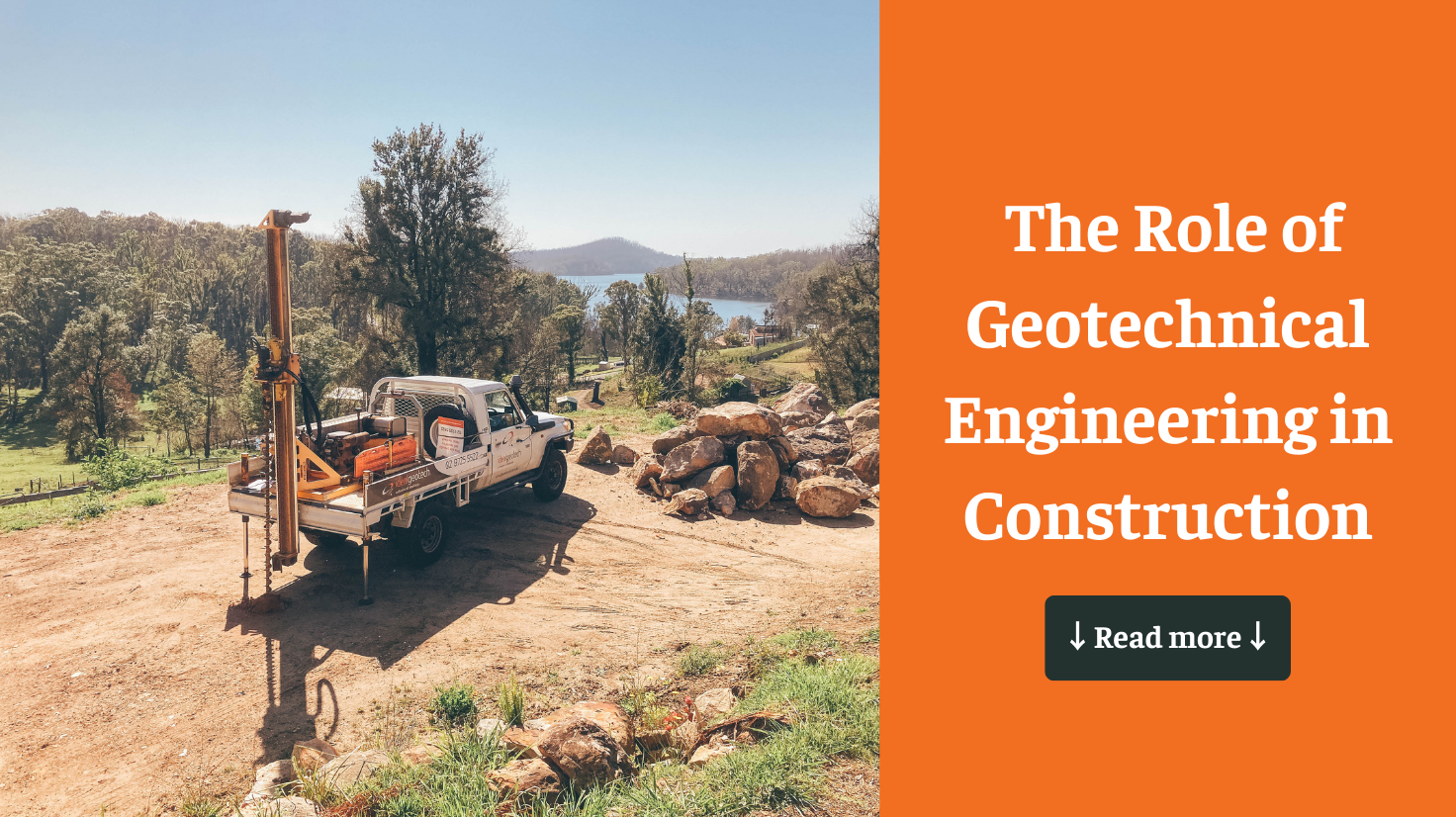Geotechnical engineering plays a crucial role in ensuring the stability of construction projects. Learn how it impacts design and overall project success.
1. What is Geotechnical Engineering?
Geotechnical engineering is a vital branch of civil engineering that focuses on understanding the behaviour of earth materials, such as soil and rock. It involves analysing subsurface conditions to ensure that a building’s foundation or infrastructure is stable and secure. By assessing how structures interact with the ground, geotechnical engineers prevent issues like foundation movement, settlement, or landslides, making their work indispensable for construction projects.
2. Importance for Construction
The stability and safety of any structure, whether it’s a home, commercial building, light , or road, are reliant on thorough geotechnical engineering. By evaluating soil conditions, groundwater levels, and the physical properties of the earth, geotechnical engineers determine the optimal foundation design to support your project. These analyses are crucial to ensure that the structure is built on firm ground, preventing potential issues such as cracking or shifting foundations. Without these insights, projects risk delays, cost blowouts, or even structural failures.
3. Services Provided by Geotechnical Engineers
Geotechnical services cover a wide range of activities aimed at assessing and preparing the ground for construction. These services may include:
- Geotechnical Assessment: Involving subsurface investigations to evaluate ground conditions for safe and cost-effective construction. Our experts analyse soil and rock to provide recommendations on footings, retaining walls, and more, ensuring the site can support the project
- Shrink-Swell (Soil Reactivity): Assessing soil reactivity, especially in clay soils, to identify potential ground movement risks. Shrink-swell tests help design foundations that accommodate soil movement, reducing the risk of structural damage.
- Aggressivity Testing: Analysing soil for corrosive factors like pH, chlorides, and sulfates, helping select materials that resist corrosion in concrete and steel structures.
- Soil Permeability/Infiltration: Testing how water flows through soil to aid in designing drainage systems, preventing waterlogging, erosion, and instability, especially in high rainfall areas.
- Footings Inspection: Ensuring footings are adequate to support a building’s load, preventing settlement or uneven load distribution, which could lead to structural failure.
->>> See more Geotechnical services
At Ideal Geotech, we offer comprehensive geotechnical services to ensure your project starts on solid ground. From initial site investigations to detailed soil testing, our team provides expert advice tailored to your project’s specific needs.
4. Role in Project Success
Engaging professional geotechnical services is critical to the success of any construction project. Geotechnical engineers identify potential issues early, allowing for better planning and preventing costly problems down the track. Proper soil analysis and foundation design ensure a structure’s stability and longevity, ultimately saving you time and money. By partnering with Ideal Geotech, you’ll have access to experienced geotechnical engineers who understand the challenges of construction across New South Wales, Queensland, and Southeast Australia.
For a reliable foundation and a smooth construction process, trust Ideal Geotech to provide the expertise you need. Contact Ideal Geotech to get professional advice and geotechnical services tailored to your next project.






